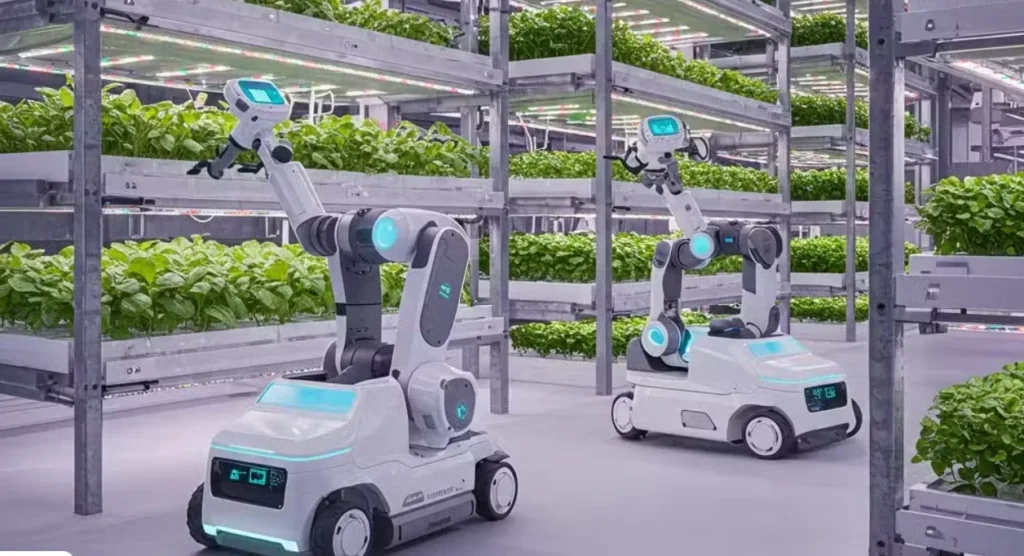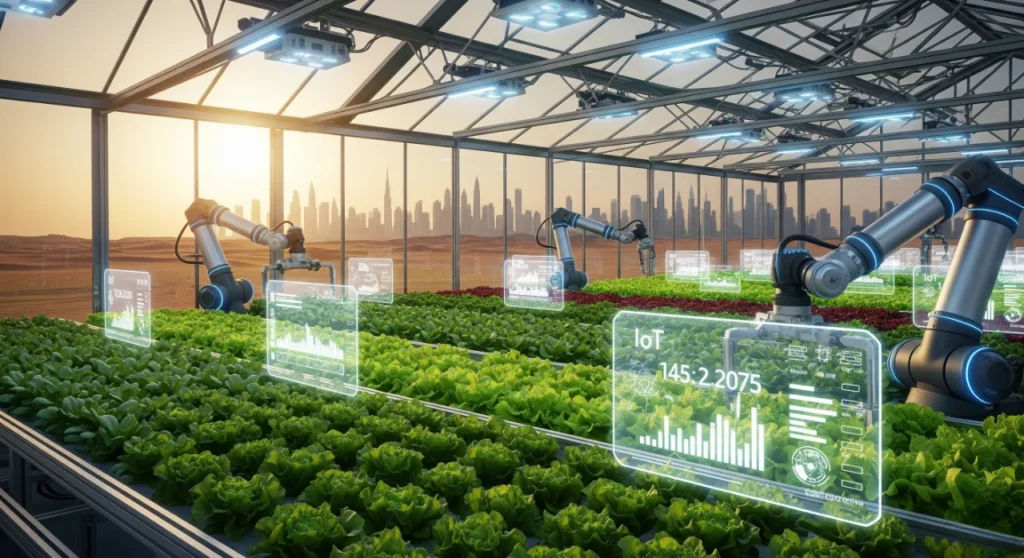The Gulf’s race for food security has a new chapter. INNOFarms.AI and UAE-based Veggitech have signed a Memorandum of Understanding to bring advanced SmartFarming solutions to the region.
The deal blends hydroponics with AI, IoT, and robotics—an ambitious attempt to grow more food locally while cutting reliance on imports in one of the world’s driest climates.
Key Takeaways
- INNOFarms.AI and Veggitech partner on SmartFarming expansion across GCC.
- MoU integrates hydroponics, AI, IoT, and robotics in food production.
- Initiative targets food security amid arid climate and import dependence.
- GCC nations increase investment in controlled-environment farming.
- Partnership highlights tech-driven path to agricultural resilience.
INNOFarms.AI and Veggitech have signed a strategic MoU to accelerate SmartFarming in the Gulf. The partnership combines hydroponics with AI, IoT, and robotics to develop sustainable farming systems that address food security challenges in the GCC, where limited farmland and high import dependence drive innovation in agriculture.
Why the Gulf Is Betting on SmartFarming
Food security is an urgent priority in the Gulf Cooperation Council (GCC). With scarce arable land, limited freshwater, and rising import costs, governments are pushing for controlled-environment agriculture. The latest move comes from INNOFarms.AI and UAE-based Veggitech, who this week signed a Memorandum of Understanding to scale up SmartFarming across the region.
Inside the Agreement
The collaboration will merge Veggitech’s hydroponic expertise with INNOFarms.AI’s capabilities in artificial intelligence, Internet of Things (IoT), and robotics. Together, they aim to design farms that monitor crops in real time, optimize inputs, and reduce water and energy use—critical needs in desert economies.
According to the announcement, the SmartFarms will be designed to produce fresh food locally, reduce supply chain risks, and align with GCC nations’ long-term food security strategies.

A Regional Trendline
The deal reflects a wider wave of agri-tech investment in the Middle East. The UAE has been expanding vertical farming projects, while Saudi Arabia’s Vision 2030 emphasizes technology-driven agriculture. Qatar and Oman have also launched initiatives to strengthen resilience against global supply disruptions.
Industry observers say the INNOFarms.AI–Veggitech partnership stands out for its combination of hydroponics and advanced digital tools, potentially creating scalable models for both commercial operators and government-backed projects.
Expert View
Brajendra Yadav, speaking on behalf of the initiative, said the agreement is aimed at “reshaping agriculture with technology and building stronger food systems” in the region. While full details of pilot projects are yet to be announced, both firms see the MoU as a foundation for larger commercial deployments.
Looking Ahead
If successful, the collaboration could position the GCC as a global hub for SmartFarming innovation. Beyond the Gulf, the model may prove valuable for other arid regions grappling with water scarcity and rising demand for fresh food.
For consumers, the payoff could be more reliable access to locally grown produce. For governments, it represents another step toward food independence in a region long reliant on imports.
Conclusion
The INNOFarms.AI–Veggitech MoU is more than a corporate agreement—it’s a signal that the Gulf’s food future will be engineered through technology. As agri-tech momentum builds across the region, SmartFarms may soon move from experimental sites to mainstream food production.
